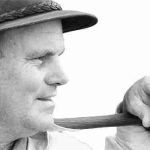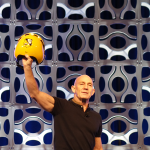Author: Joni Peddie
Without exaggerating, there are literally hundreds of ways of becoming more self- aware, and hence be more Adaptable to embrace and think through opportunities and / or adversity. As a Preferred Partner in South Africa for the Six Seconds EQ Worldwide Network (in 174 countries), we talk about ‘emotions driving people, and people driving performance’. […]
Without exaggerating, there are literally hundreds of ways of becoming more self- aware, and hence be more Adaptable to embrace and think through opportunities and / or adversity.
As a Preferred Partner in South Africa for the Six Seconds EQ Worldwide Network (in 174 countries), we talk about ‘emotions driving people, and people driving performance’. As Leaders we need to act with purpose and forethought, and one of the enablers for this is ‘pausing’ to look ahead, before you jump in. Applying consequential thinking (ACT) is one of the eight competencies in the Six Seconds Model of Emotional Intelligence.
ACT takes into account that we can use our emotions and our rational thinking to help us pause, evaluate our choices, and the in-turn ensure that we are more ‘adaptable’ for that set of circumstances. Perhaps you need to ask yourself a few questions: ‘What else do I need to take into account?’ ; ‘What / who will give me perspective?’ ; ‘What are the implications for myself / others, in both the short- term and the long-term?’
All 8 EQ competencies are all learnable competencies. ACT, is one that I have focused on developing. I run a busy life (like most people) and a business that delivers workshops and programmes for Clients in different time zones. Everything I do aligns with my personal purpose statement – ‘To inspire actionable resilience, for people to live their best, and most optimal life’. I often need to ‘make choices’ and weigh up the Pros and Cons. To ensure that I have time to ask myself the right provocative questions – I need to push the ‘pause button’. This ensures that I can be intentional and responsive, as opposed to reactive and impulsive.
Here are three practical ways to ‘push your own pause button’, so that you can strengthen your AQ. Your ‘Adaptability Quotient’..
When I am emotionally triggered, and worrying that my rational thinking will go out the window, I know that I need to ‘do something’. As a result, I stand-up and get away from my desk. I go and bounce (for about two minutes) vigorously on my mini-trampoline, which is five meters from my desk, on my veranda. If I am in a meeting room / board room, I will fabricate a ‘bathroom break’. When in the bathroom, I do fifty deep squats (in the cubicle if others are around). I try and focus on the counting, so that I give my ‘brain-a-breather’ and keep counting under my breath until I get to fifty! ‘Motion shifts Emotion’. This buys me time to ACT, and to think through my choices. I want to think through how I potentially want to respond, when I get back to the board room.
If I am working on a project, or trying to re-prioritise my day – I’ll use Dr Caroline Leaf’s breathing technique which is beautifully simple and incredibly practical.
I will get up from my desk and walk to the kitchen to get something to drink, or a healthy snack. As I walk, I breathe-in (through my nose) to the count of three and mentally ask myself – “What do I feel?” and “What do I think?”.
I then breathe-out (through my mouth) to the count of seven and ask myself (mentally) – “What do I choose?”. I’ll do this breathing / mental-clearing technique about three times.
Answers and ‘pearls of wisdom’ don’t immediately spring to mind. However, this is what I call the ‘windscreen wiper’ for my brain. I return to my desk and look at the project / task at hand, and it feels like the burst of oxygen to my brain has given me ‘fresh eyes’ (like a clean windscreen) and a new perspective for ‘consequential thinking’. In other words a long-range view of potential ‘consequences’. This greatly enhances ‘choice’ and adaptability.
None of these are rocket science.None of them cost a cent. So remind yourself that there is a vast difference between ‘knowing’ and ‘doing’. Challenge yourself to do one of them TODAY, and boost your ‘adaptability quotient’.
Dr Caroline Leaf is a neuro-scientist specialising in cognitive and metacognitive neuropsychology. Her latest book (released on 2 March 2021) is a must-read: “Cleaning Up Your Mental Mess: 5 Simple, Scientifically Proven Steps to Reduce Anxiety, Stress & Toxic Thinking”
Contact Us at WeSpeak Global and follow us on Facebook
Read further articles in similar categories
The articles, video and images embedded on these pages are from various speakers and talent.
These remain the property of its owner and are not affiliated with or endorsed by WeSpeak Global.

Some say great leaders are born. We say great leaders are made, HOW TO BE A GREAT LEADER. There are many different types of leaders and leadership styles. While it’s important to find your own style, there are many qualities of leaders throughout history that have stood the test of time. While we will view […]

Vancouver, Canada | Disembarking On a beautiful sunny morning, the Captain brought Seabourn Odyssey alongside Canada Place in Vancouver at 7am. Long before the ship is cleared and guests are allowed to disembark, the activity begins. A massive fuel barge is brought alongside to refuel (bunker) the ship, and the quayside is lined with […]

Take charge of your digital habits and screen time and the added pressure of being available 24/7 can make you feel trapped and unsure of where to start. Do you reach for your phone without thinking about it? Do you interrupt a conversation to click on Instagram or WhatsApp the moment you see a notification […]

Most people experience discomfort and they run. Hunting Discomfort may be the experience of pain (and that’s… unpleasant), but on the other side of that pain are breakthrough results. If you’re committed to breakthrough results, hunting discomfort will get you there, even to give a TED Talk. Everyone knows that giving a TED Talk is […]

My South Africa was not supposed to be a hit. Ingrid Jones contacted me late on a Sunday night to explain the concept and to urge me to do a ‘quick one’ for an inflight magazine. I did the piece in less than an hour and went to sleep. Next thing I heard was that […]

Raizcorp supports over 500 businesses, find out their innovative selection process and how success can be your downfall. Allon Raiz, is a successful entrepreneur building numerous businesses and he is the founder of Raizcorp which nurtures entrepreneurs and grows profitable businesses. How Allon Raiz Went From A Failed Business To Raizcorp Allon Raiz is regarded […]

Other than a brief period when I was in the Middle East, for the past 13 years I have not had an office out of which I worked. I have however, been part of teams that have worked closely together every day and Living in an online world: Virtual Collaboration and Virtual Teams One year […]

The Olympics are finally here after a year-long COVID delay and how Gratitude Wires Your Brain. The Olympic Games are incredibly inspiring. These men and women give a clinic on Peak Performance for twelve action-packed days. There will be thrilling victories, world-record-breaking performances, and soul-crushing defeats. But everyone competing will be showing you what peak […]
No results available
Our Mission
© All rights reserved 2025. Created using VOXEL THEME